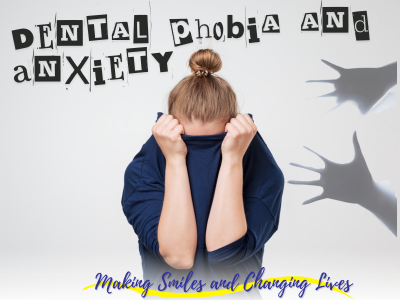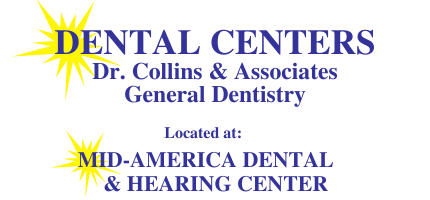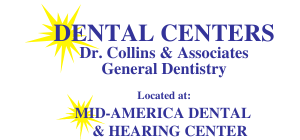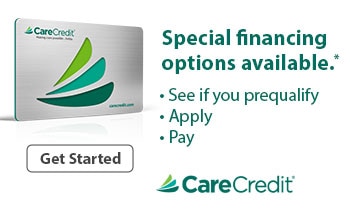Our Dental Blog

Dental Phobia and Anxiety
Most people have some degree of dental anxiety, especially if they’re facing a procedure which is new to them. Often, it’s a fear of the unknown – the “uncertainty factor”. Dental fear tends to be far more specific. If somebody has a fear, they can usually tell you what exactly it is they’re scared of. Common examples include needles, pain, gagging or being humiliated. If you have a lot of different dental fears, pinpointing them can become a little overwhelming. But you should be able to identify them with some prompting.
In most cases, dental phobia comes from embarrassment or potential humiliation. If you have avoided the dentist for many years, your teeth may be in bad shape. As a result, you may feel shame and intense embarrassment in social situations and try and hide your mouth. The thought of a dentist seeing your teeth may be impossible to even contemplate on how bad it really is. One of the other causes is humiliation and the perceived thought that your dentist would be insensitive, and that you could be humiliated by remarks by a dentist or hygienist. In fact, human beings are social animals, and negative social evaluation will upset most people. Your dentist has seen it all and is here to help you and not judge you on how bad the situation may be.
We get it the fear is there, however you can help get over some of the anxiety with these helpful tips to make your next appointment a breeze.
Here are some tried-and-tested tips for overcoming dental phobias, anxiety, and fears.
1) Find the right dentist: This really is the key! Overcoming dental phobia is not about no longer being afraid of the dentist, but about no longer being afraid of YOUR dentist.
2) Let your dentist know about your fears: Let your potential dentist know how scared you are and what you are afraid of. Dentists are not mind readers, and they won’t be able to help if they don’t know. You can use this handy patient form if you’re lost for words.
3) Just have a chat, away from the chair: If you like, arrange for the first visit to be just a chat, away from the chair. Maybe there is a “neutral” room in the dental practice where you can talk. We’ve even had forum members meet their potential dentists out in the car park because they were too scared to set foot in a dental practice.
4) Treat the first visit like a job interview: Treat the first visit like a job interview – you’re interviewing the dentist to see if you want to hire them. Are you and your dentist a good fit? Do you like them?
5) Tackling shame and embarrassment: You may feel mortified at the prospect of having to open your mouth and letting a dentist see the mess. Be assured that most dentists are doers, not really bothered about what the teeth are like, and will just plan how to fix them. Also, it’s highly unlikely that the dentist will not have seen much worse during their careers. To get over the “my teeth are disgusting and the worst the dentist has ever seen” syndrome, arrange that the first examination is just a quick look. You can even do this outside the chair, standing up rather than sitting down. Do let your dentist know how you feel, and that you’re scared of their reaction and what they will think.
6) Arrange a stop signal: Discuss with your dentist and agree on a stop signal. The most common example is raising your left hand. Then, test your dentist by trying it out! Having a coping signal (for example, a thumbs-up) is also helpful. That way, your dentist can check if you’re doing ok without you having to speak.
7) Bring a friend: If you like, bring a trusted friend or family member with you. No anxious-friendly dentist will object to an extra person in the room. Of course, if you’re scared of embarrassing yourself in front of your nearest and dearest, you can go it alone!
8) Bring a blanket or a comforting object: A blanket, or a weighted blanket, can make you feel safe and protected. Or bring a comforting object. Examples include lucky charms, stuffed toys, stress balls, or fidget widgets.
9) Clothing: Wear an outfit you feel confident and comfortable in.
10) Listen to music or watch TV: More and more dentists these days are offering a choice of music, or the radio may be playing in the background. If you prefer to listen to your own music, using a portable device or headphones to listen to music on your mobile phone.
11) The dreaded chair: Do you absolutely hate that feeling when the chair goes back? You’re not alone – it makes many people feel vulnerable and exposed. Here’s a tip: ask if you can stay sitting up while the chair is reclined into the position the dentist wants it. Once the chair is in its final position, you can then take all the time you need to lie back and get comfortable. This avoids the horrible loss of control feeling you get when the chair goes back. Alternatively, ask your dentist if you can operate the button that makes the chair move back. That way, you can move it back gradually at your own pace.
12) Close your eyes: Many people that have experienced dental phobia find dental treatment easier with their eyes closed. Having said that, others prefer to keep their eyes open. Or you might want to look during certain parts of the appointment, but not during others. The choice is yours!
13) Baby Steps: Unless you’re in acute pain and need urgent treatment, prove to yourself that you can handle one aspect of your fears before addressing the next. For example, start with a “simple” procedure such as a cleaning, and work up to more complex treatments.
14) Short bursts of treatment: Start off with doing treatment in short bursts. For example, use the ultrasonic cleaner to the count of 3, then take a break, then try another 3 seconds, until you feel confident that you’re comfortable and able to cope.
15) Explanations and running commentaries: Ask your dentist to explain the procedure to you before it begins. You may also want to ask for a running commentary about what they are about to do, what sensations and sounds to expect, and how long each part of the procedure will last. If you’d rather not know (not everyone does), let your dentist know!
16) Check out the equipment: If you like, ask your dentist to show and demonstrate to you any tools or materials they’re going to use. You may find it helpful to know what they look, sound, and feel like. Many people find that holding the instruments themselves, and having them demonstrated (for example, on your finger), really helps.
17) Take a break: Agree with your dentist on taking scheduled breaks during treatment. Natural pauses in the flow of procedures can also be used to relax and rest a little.
18) Time of day: Many people like the first appointment of the day, because there’s less time to dwell on it in the hours beforehand. Picture of a clock - choosing a good time of day is important when making a dental appointment. If you’re not a morning person, the slot right after the lunch break is a good choice. Dentists often run late, so being the first patient after lunch means you don’t have to wait around. Or else, ask for the last appointment of the day. That way, you won’t feel like you’re holding up the next patient. You could also ask the dentist if they have a favorite time of day for seeing their anxious patients!
19) Aromatherapy: Put an essential oil such as lavender oil around your nose while in the waiting room.
20) Wear dark sunglasses: Although you’ll be given safety glasses, these are not always particularly dark. So, if you hate bright lights, bring your own sunglasses just in case. Wearing your own glasses can also help with feeling in control.
21) Hold the suction tube: You may find it helpful to hold the saliva ejector (a thin flexible suction tube) to hoover up any pooling saliva and give you a feeling that you’re participating in the treatment.
22) Concentrate on your breathing: Breathe deeply and evenly – for example, in for 5 seconds, out for 5 seconds. When breathing in, inhale slowly through your nose while pushing your belly out. Also pay special attention to tense areas in your body: for example, you may find that your shoulders tense up. Then, make a conscious effort to relax those muscles in your body.
23) Celebrate: Have a treat lined up as a reward – a parcel that will be waiting, a special drink, a bunch of flowers cake for after dinner, a meal out, whatever!
For over 44 years, Dental Centers have been committed to keeping your family's SMILE healthy and beautiful in a friendly and most importantly, comfortable atmosphere. Dr. Brian Collins utilizes the latest technological advances and computer imaging to ensure we create a beautiful smile for every patient. We are here to help you achieve and maintain good dental health, and most importantly without judgement for you and your family.
Make an appointment today, you’ll be glad you did and your improved smile will reflect the great decision!
Blog Archive

